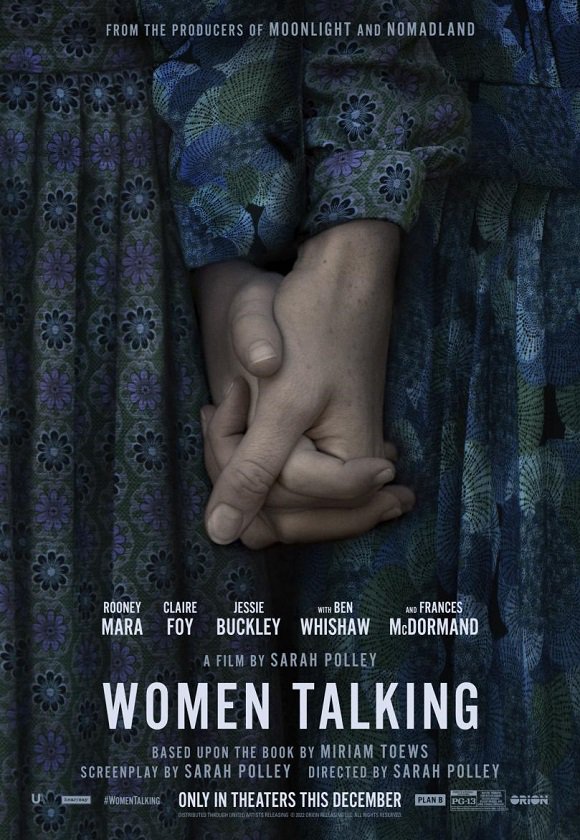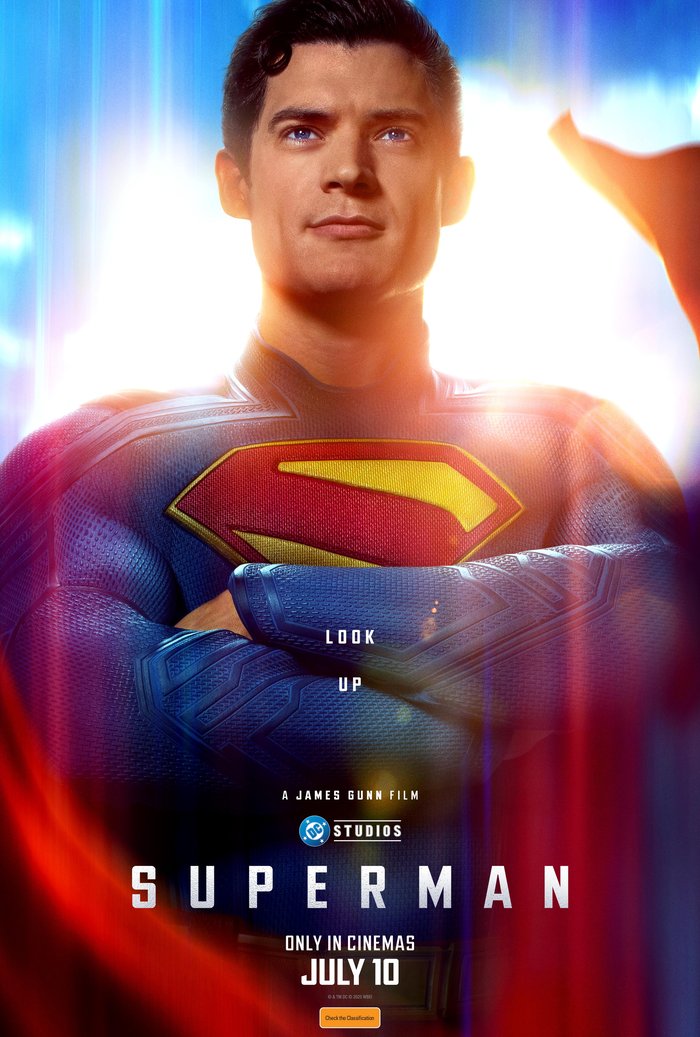Women Talking
NZ release: 16 February 2023
Sexual violence and domestic abuse Rated on: 03 February 2023

What’s it about?
The women of an insular Canadian Mennonite community gather to discuss what to do after it is revealed that the men in their community have been drugging and sexually assaulting the girls and women for many years.
A majority of the film is set in a hayloft, where the women debate the pros and cons of forgiving, staying and fighting, or leaving the only world they have ever known.
The facts
- Directed by Sarah Polley (Stories We Tell, Away from Her)
- English language
- Runtime: 104 minutes
- Based on a novel of the same name and inspired by real-life events in Bolivia.
Why did it get this rating?
The film includes extensive discussions around the subject of rape, including incest. However, the dialogue is not detailed and is unlikely to be fully understood by children. A lot is implied through the craft of scripting and direction of what we are shown on screen.
Te Mana Whakaatu—Classification Office considers that there is value in allowing young people to engage with this film given its historical, cultural and social merit as a dramatisation of real events. An RP classification allows young people to view the film if accompanied by a parent or guardian in order to mitigate potential harms. If a young person is 13 or older they don’t need to be accompanied by a guardian.
Sexual violence
The central storyline of the film is about the consequences of sexual violence against the women and girls of the community. No assaults are shown but flashbacks take us back to scenes following on from the attacks. The voiceover explains that they were sedated and attacked in their beds by their husbands, fathers, brothers, and neighbours.
In one flashback, a teenage girl wearing a bloodied nightgown smears blood on the wall in a fit of rage. She confronts her attacker, who is locked in a shed, by talking calmly through the wall dividing them. Her monologue suggests that it is her brother. We learn that she was raped and impregnated and that she has miscarried. She becomes mute from the trauma and begins to identify as male from then on.
Greta, an elderly woman, is shown waking up and spitting out bloodied teeth. The implication, not spoken, is that she was violently assaulted as she slept.
Ona, a single woman, debates her future now she is pregnant from rape. In flashback we see her waking to discover bloodied sheets and bruised, bloodied thighs. Another woman suggests that Ona’s baby will probably be given to another family – maybe even the family of the attacker – if she stays in the community.
Salome carries her four-year-old daughter to a nearby town for antibiotics. Later it is revealed that the girl had been raped. It is implied that the antibiotics are treating a sexually-transmitted infection.
Cruelty
The setting and the conversation explore the suffering of women in a repressed, conservative and patriarchal society. Members who question the faith or community rules are excommunicated.
The women are illiterate and require a male schoolteacher to take notes of their meeting so that actions and decisions can be recorded for the community.
A voiceover explains that the initial concerns of sexual assault were dismissed as delusions and “wild female imagination”, the product of “demons”. This is revealed to be gas lighting, as one of the men is caught at night attempting to commit an assault. This is shown with the intruder being scared off by an angry girl in a nightgown.
The women are ordered to forgive the men or suffer the pain of eternal damnation. The choice for the women is presented as staying and fighting, forgiving, or leaving.
Domestic abuse
Domestic violence and abuse is talked about briefly. A mother and daughter choose to return to their home where the abusive husband and father awaits them. The depiction of their injuries the next day is restrained and limited to bruises, blood on their faces, and the mother with her arm in a sling.
Violence
There is low level violence shown through flashbacks, and the most serious physical harm and cruelty of the story is implied or talked around.
We see in a flashback that Salome, a rape survivor, learns that her four-year-old was sexually assaulted. She violently attacks the assailant with a scythe, swinging the weapon at the man off-camera. She is restrained by other community members. Later she verbally threatens to destroy anyone who harms her child again.
Language
“F**k” and “sh*t” are each used once. Ona is called a “whore” by one of the other women.
Suicide references
There are three references to suicide. These are not strong or shown, however some viewers with sensitivities to storylines about suicide could find these upsetting.
The women discuss a member of the community who hanged herself after she was raped.
One of the teenagers makes a joke of suicide by running through the hayloft and jumping out the open barn doors to the hay wain below. The camera pans down to show her laughing in the hay.
The schoolteacher hands Salome a gun for protection, which he had planned to use on himself. Salome tells him he is an important role model for the boys in the community and to not kill himself.
Helplines
If you or someone you know needs to talk:
- Free call or text 1737 any time for support from a trained counsellor
- Safe to talk
- Lifeline
Further information
- What is an RP classification and why is Women Talking RP13?
- Why are ratings and content warnings important for me and my whānau?
- Talking with young people about what they’re watching
- Classification labels
- ‘Women Talking’ review: A powerful, moving tribute to quiet strength (Seattle Times)
- When a single conversation can mean life or death (The Atlantic)
- Radical dialogue and open roads in ‘Women Talking’ (AP News)
Recent featured decisions
Violence
Five years after Jurassic World: Dominion (2022), a daring expedition ventures into remote equatorial territories to collect DNA from three colossal prehistoric creatures, in hopes of achieving a revolutionary medical breakthrough.

